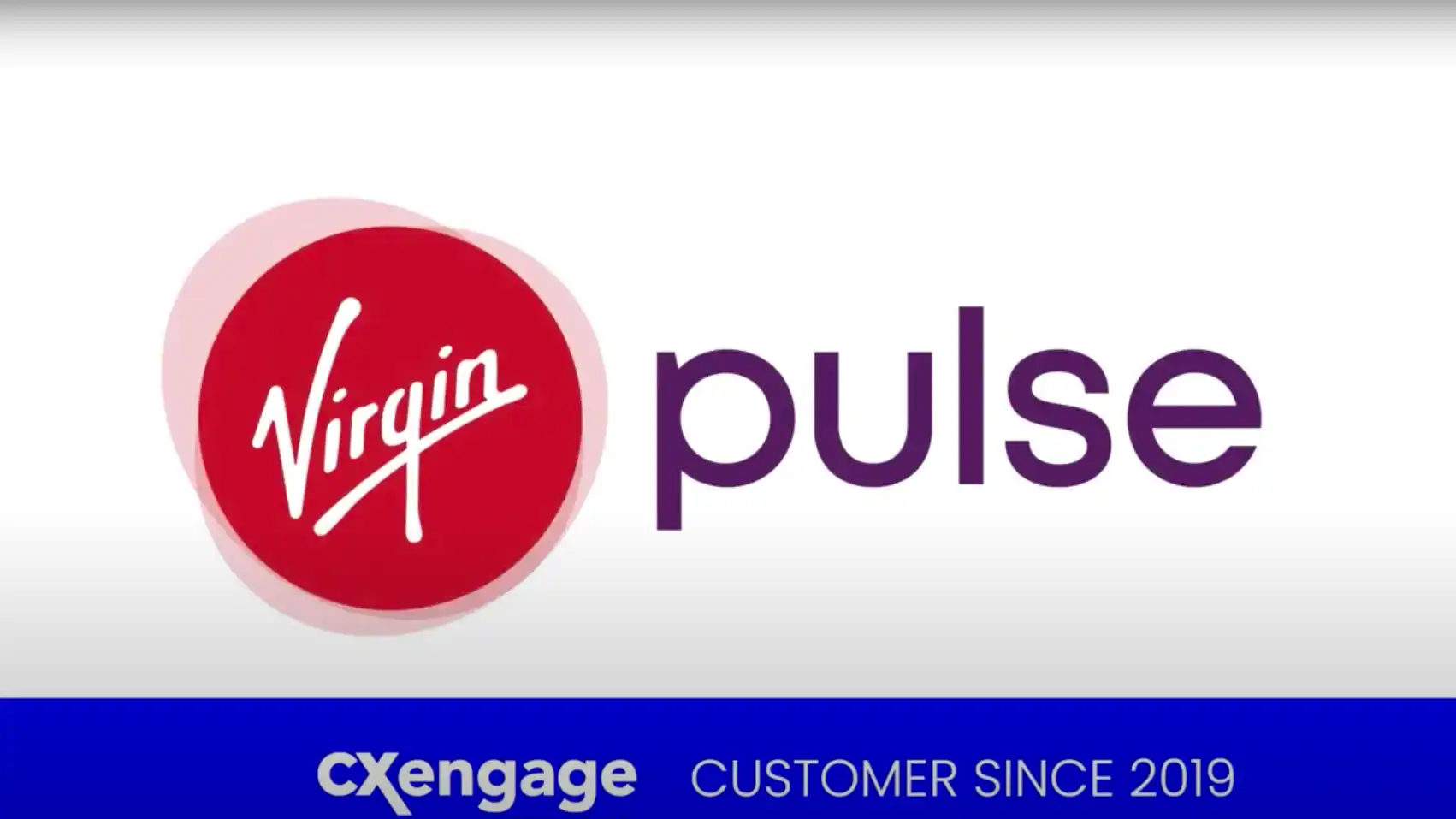Improving customer experience is a stated priority for nearly all businesses, large and small, spanning geographies and every conceivable market category. Yet, elevating customers’ perception of your brand and their experience with your business and products remains elusive, with all but the elite falling short of expectations in one area or another.
Businesses face ever-increasing expectations and the burden of an ever-growing volume and breadth of customer inquiries, which range from order status updates to product support to billing and more. To adequately address these questions, businesses need to employ teams of customer service employees that can answer the call and deliver the optimal experience every time, no matter the nature of the request. These call center agents serve at the frontlines for the business and have an outsized impact on customers’ perception of the organization at large.
How important are call center agents on brand perception, you ask? A 2018 research study found that customers will pay up to 16% more for products and services they deem to provide a superior customer experience. 73% of customers also said that a good experience was key to their decision to remain loyal to a brand, with 60% saying they would stop doing business with a company if they were on the receiving end of unfriendly service.
Call center agents serve at the forefront of the business, fielding complaints, resolving issues and ensuring satisfaction at every point of the customer journey. In recent years, businesses have evolved the role of call center agents to help customers through a variety of mediums giving birth to the omnichannel contact center. This has further extended the role of the contact center agent and created new complexity for agents.
In this post, we define the role of a modern call center agent and attempt to further explain how vital they are to elevating customer experience.
What is a Call Center Agent?
A call center agent, sometimes called a customer service representative, is an employee that handles inbound or outbound customer calls. From product defects to shipping inquiries, call center agents are often asked to manage a wide variety of tasks, whether identifying customer needs and answering questions or recommending products and new services when applicable.
As established, customer perception of the company is often impacted by these interactions. More than 39% of Americans think that the most important aspect of a good customer service experience is working with a well-informed call center agent.
Americans consumers, in particular, also want to have the least amount of interactions as possible to resolve their issue, so it’s vital that call center agents be equipped to answer questions quickly without the customer being asked to remain on the phone or a chat waiting room for prolonged periods of time.
Skills Required for Call Center Agents
Call center agents have to be Swiss army knives for businesses, so it’s difficult to succinctly state their job description. During the past decade, contact centers have begun to adopt new technologies such as cloud-based CRMs, intelligent IVRs, chatbots and true omnichannel capabilities, further highlighting the need for robust agent training to ensure employees are adept at interacting with customers in a variety of modalities. Generally, the best call center agents possess the following attributes.
Active Listener
If you’re often frustrated when troubleshooting problems, being a call center agent may not be for you. While call center agents aren’t expected to immediately know the answer to every customer’s issue or question, they’re expected to diligently work with customers to understand the problem at hand and leverage available information and resources to find a resolution. Often, this requires practicing active listening to understand the context around what the customer is saying. This ability to think beyond what the customer is communicating in order to decipher the root cause or best path to addressing their issues, allows call center agents to ask more relevant questions and deliver a better customer experience.
Calm Composure
Experienced call center agents know all too well how difficult it can be to stay calm when a customer is irate. However, agents’ ability to do so, and to effectively manage stress when calls get tense, is one of the most important aspects of representing the brand. Sometimes the requests that come in are time-sensitive. In other instances, company policy doesn’t allow the agent to offer what the customer is requesting. Striking a balance of cool-headedness and assertive customer support is important for those who accept the job.
Ability to Learn Fast
Much has been written about call center turnover rates, which are some of the highest among any profession. In recent years, contact center leaders have become increasingly attuned to turnover due to rising costs associated with hiring, onboarding and training new call center agents. A 2019 study found estimated it costs $5,000 – $7,000 to hire and train a new agent.
Given the company’s investment in every new employee, agents are expected to learn about product features and company policies fast, often through extended, specialized orientation programs. Even after onboarding, agents are expected to stay up to date on new products and services, as well as evolving customer expectations and new use cases. In this regard, agents tend to have the deepest understanding of customers’ experience with the business and can offer valuable insight regarding shifts in perception and satisfaction.
Great Communication
While metrics vary based on company and industry, call center agents are often expected to field dozens of customer inquiries every day. That’s why great communication skills are a must-have for any call center agent. Not surprisingly for a profession that spends nearly 100% of their day communicating with customers, call center agents tend to have superior verbal and written communication skills with a keen understanding of how to balance being conversational and professional.
Call Center Agent Responsibilities
As established, call center agent responsibilities evolve each day. However, there are a few core tenants of their job that remain consistent. They’re responsible for taking customer support calls, supporting outbound campaigns, staying up to date on the company’s offerings and cross-selling/upselling.
Taking Customer Support Calls
Potentially the most important part of a call center’s job is their ability to take customer support calls. Most of these calls will primarily be over the phone, but the call center agent may also be asked to resolve issues via email, SMS text, or even through a chatbot in their downtime.
For example, Zoma, a mattress company, has their customer support representatives respond to inquiries through their chatbot when the phone lines are quiet.
Calling Out for Customer Support
Sometimes, it pays to be proactive. Often, agents will perform outbound calls to routinely check in on customers and see if they have any issues with the product or service. Outbound customer service is effective at identifying problems before they can begin. Proactively calling customers or driving inquiries through paid ad campaigns are effective ways to ensure your business is accessible and ready to help.
Learning about New Products
Since they’re on the front lines, call center agents need to know every aspect of the product or service. In peak times, they’ll be flooded with questions and customers expect agents are knowledgeable about every imaginable issue, regardless of how common it is. To help agents stay current, contact center leaders must ensure help product and policy documentation is constantly updated and agents know exactly where to find it when needed.
Training
Companies are constantly changing, so routine call center training is essential for all call center agents. This will keep the team sharp and able to troubleshoot new issues as they arise. Continuous training methodologies are designed to ensure agents consistently receive new information in formats designed for long-term retention. Continuous training programs typically include online and self-paced curriculum, which can easily be scheduled into agents’ schedules.
Cross-Selling and Up-Selling
Call center agents should be comfortable selling, too. They might easily detect a pain point that the customer is trying to solve. At that point, they can pitch the customer a solution and close the sale. Since sales might not be a core competency of many agents, contact center leaders may also need to invest in tailored training on available sales tools and methodologies they can use to become more effective.
Three Tips on Being the Best Call Center Agent
Given that virtually everything is measured in the call center, agents don’t struggle to quantify their performance, for better or worse. But, beyond the KPIs and metrics, there are a few pragmatic steps call center agents can take to ensure they are consistently expanding their skill sets and positioning themselves for future career growth.
1. Review Prior Calls.
Don’t wait until a performance review to evaluate your work. Ask your supervisor or team lead if you can take some time at the end of every week to reflect on your performance and consider what worked well and what needs improvement.
2. Know the Product Better Than Everyone.
Actually use the product if you can. Try it out. See how it works. By testing the product, you’ll improve your ability to empathize with customers and resolve issues.
3. Study Long-form Company Content
Take advantage of all company resources available. Check out the company podcast, download product guides, and read the company blog. You never know what you might learn.
How Lifesize Helps Call Center Agents Succeed
Call center agents shouldn’t be overwhelmed. Lifesize can help businesses and agents work more efficiently and deliver higher customer satisfaction with robust quality management capabilities, a true omnichannel platform and enterprise-grade integrations for all of your business-critical systems.
CxEngage Quality Management
With CxEngage Quality Management, contact center leaders can help agents be their best with detailed performance insights and analytics, call recording, screen capture and more. Improve your customer experience by evaluating call center agent data that can inform and guide your company’s next move.
Omnichannel Platform
We’ll help you build a truly seamless omnichannel customer experience with intelligent routing, well-integrated applications and native video, allowing agents to deliver exceptional support and service via whatever mode of communication the customer prefers.
Enterprise-Grade Integrations
We understand that your company already has an existing way of doing things. That’s why we’ve developed integrations to connect to your tech stack easily. From Salesforce to Zendesk, we’re able to integrate into the software you’re using and accelerate your customer service.
Conclusion
Call center jobs are the point of contact for a business’s call center, usually specializing in customer support and customer success. They’re responsible for taking customer calls, calling out for product support, learning about the products, training, and cross-selling/up-selling.
By working with Lifesize, we can help ensure your call center agents are positioned to succeed with insightful analytics, global reach, and integrations at their fingertips.






